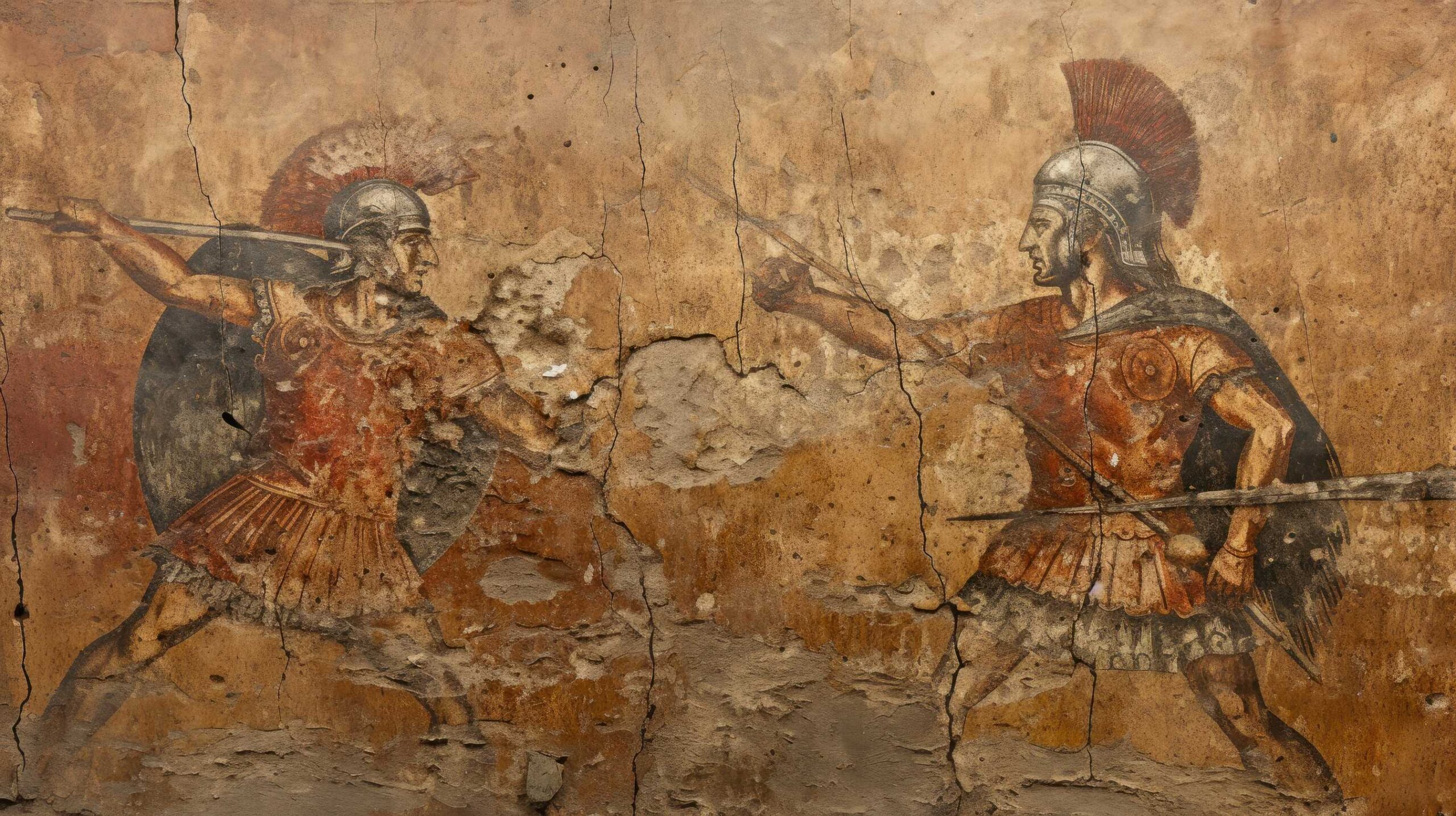
Read: Ephesians 6:10-17
Therefore, take up the whole armor of God, so that you may be able to withstand on that evil day, and having done everything, to stand firm. Stand therefore, and fasten the belt of truth around your waist, and put on the breastplate of righteousness. As shoes for your feet put on whatever will make you ready to proclaim the gospel of peace. With all of these, take the shield of faith, with which you will be able to quench all the flaming arrows of the evil one. Take the helmet of salvation and the sword of the Spirit, which is the word of God (Ephesians 6:13-17) NRSV.
Sing (or don’t): “Onward, Christian Soldiers” by Sabine Maring-Gould (1834)
Some hymns should come with a warning label, and this is one of them. Maybe that’s why it has dropped out of so many hymnals in recent decades. People seem to perceive that the hymn’s militaristic language may not be quite the “thing” anymore. Take a look at the first half of the hymn, and see what you think:
1 Onward, Christian soldiers,
Marching as to war.
With the cross of Jesus
Going on before:
Christ, the royal Master,
Leads against the foe;
Forward into battle,
See His banners go.
Refrain:
Onward, Christian soldiers,
marching as to war,
With the cross of Jesus
going on before.
2 Like a mighty army
Moves the Church of God;
Christians, we are treading
Where the saints have trod,
We are not divided,
All one body we:
One in hope and one in faith,
One in charity. [Refrain]
To be fair, the military metaphor that dominates the hymn has Scripture as its source. In Ephesians 6, Paul encourages the Ephesian Christians to “put on the whole armor of God.” Using the accoutrements of the familiar armor of the Roman soldier as a symbolic starting point, he urges them to strap on the belt of truth, the breastplate of righteousness, the shield of faith, the helmet of salvation, and the sword of the Spirit.
This was an apt metaphor in the context of the early Christian church. Roman soldiers were everywhere, after all, and had a reputation for invincibility. Early Christians were usually on the receiving end of that invincibility. Paul’s words invited them to imagine what it would be like to have access to such armor against spiritual enemies (see v. 12). I suspect the irony of those words would not have been lost on original recipients of Paul’s letter. Not only is Paul using the uniform of the oppressor as a teaching tool, but he’s also using the trappings of war to encourage his readers “to proclaim the gospel of peace” (v. 15).
So, if it worked so well for the ancient Ephesians, why doesn’t it work equally well for us?
Theoretically, I suppose it could still work. The trouble is that we’re all such literalists.
There’s been a terrible tendency over the centuries to confuse the messenger with the message. The military metaphor is the messenger, after all. It’s designed to proclaim the gospel of peace. Oblivious to the irony, we rush out to strap on literal armor and conquer the world by force. If you don’t believe me, read up on the Crusades, or for that matter, Christian nationalism.
To paraphrase a verse from the book of Proverbs, there is a time for every hymn-text under heaven. This may not be the time for this one. In my opinion, it’s time to put this old war-horse out to pasture.
Ponder: What’s your experience with this hymn? Would it be hard to give it up? If so, why?
Pray: May the songs that we sing be acceptable to you, Prince of Peace.
